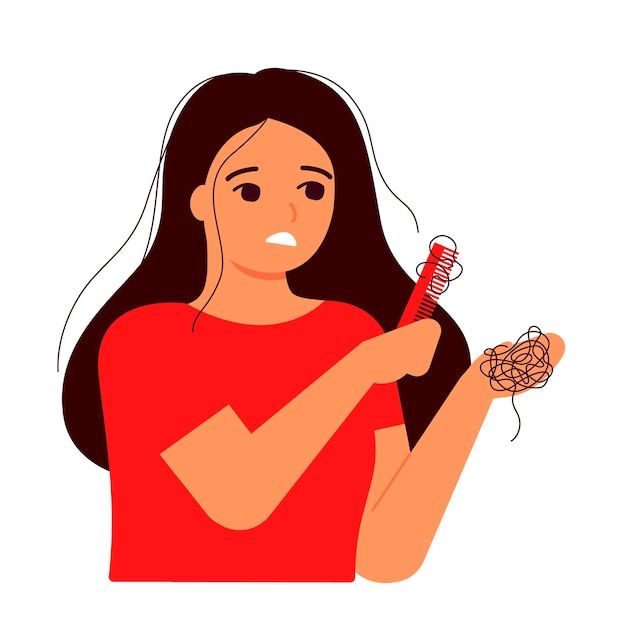
Can Diet Deficiencies Cause Alopecia?
Your Guide to Understanding the Role of Nutrition in Hair Health
Hair loss, including conditions like alopecia, is a concern for millions worldwide. While many factors contribute to hair thinning or bald patches, one underlying cause that often goes unnoticed is diet deficiencies. At Kaira Hair Care, we believe in taking a holistic approach to hair health, which includes understanding how nutrition impacts your scalp and hair follicles. Let’s explore the connection between diet deficiencies and alopecia, supported by research and expert insights.
What is Alopecia?
Alopecia is an umbrella term for hair loss that can occur in various forms:
- Alopecia areata: Patchy hair loss caused by autoimmune disorders.
- Androgenetic alopecia: Commonly known as male or female pattern baldness.
- Telogen effluvium: Temporary hair thinning due to stress or other triggers.
While genetic, hormonal, or medical factors play a significant role, emerging research highlights that poor nutrition can exacerbate these conditions or even trigger hair loss in susceptible individuals.
Nutritional Deficiencies That Impact Hair Health
- Iron Deficiency
- Iron is essential for oxygen transport to hair follicles. A lack of it can lead to telogen effluvium or diffuse hair thinning.
- Research Insight: A study published in the Journal of the American Academy of Dermatology (JAAD) found a strong correlation between iron deficiency and hair loss, especially in premenopausal women.
- Vitamin D Deficiency
- Vitamin D is crucial for the creation of new hair follicles. A deficiency may result in alopecia areata or slower hair regrowth.
- Supporting Study: The National Center for Biotechnology Information (NCBI) reported that individuals with alopecia areata often have lower levels of vitamin D.
- Zinc Deficiency
- Zinc supports follicle health and regulates sebum production on the scalp. A deficiency can weaken hair structure and lead to shedding.
- Study Evidence: A report in Dermatology and Therapy highlights that zinc supplementation improved hair regrowth in patients with telogen effluvium.
- Protein Deficiency
- Hair is primarily made of keratin, a type of protein. Low protein intake can result in brittle hair, slower growth, and increased shedding.
- Research Insight: According to the American Journal of Clinical Nutrition, prolonged protein deficiency can cause significant hair thinning.
- Biotin Deficiency
- Biotin, or Vitamin B7, plays a role in keratin production. Although rare, its deficiency can cause brittle hair and alopecia.
- Clinical Data: The National Institutes of Health (NIH) confirms that biotin supplementation can improve hair texture in individuals with deficiencies.
How to Prevent Hair Loss with a Balanced Diet
To maintain optimal hair health and prevent diet-related alopecia, include these nutrient-rich foods in your diet:
- Iron: Spinach, lentils, red meat, and pumpkin seeds.
- Vitamin D: Fatty fish, fortified cereals, and moderate sun exposure.
- Zinc: Nuts, seeds, whole grains, and legumes.
- Protein: Eggs, lean meat, tofu, and beans.
- Biotin: Sweet potatoes, almonds, and bananas.
At Kaira Hair Care, we also recommend incorporating supplements or herbal powders like our Balancing Powder, formulated with Ayurvedic herbs to enhance internal wellness and improve nutrient absorption.
A Holistic Approach to Hair Health
While addressing nutritional deficiencies is vital, hair care requires a multi-dimensional approach. Combine a balanced diet with a proper hair care routine using products enriched with natural, science-backed ingredients. Our Revitalizing Hair Oil and Protein Mask are designed to nourish your hair and scalp, promoting strength and resilience.
Final Thoughts
Yes, diet deficiencies can cause or worsen alopecia, but the good news is that it’s preventable and reversible with the right interventions. By addressing nutritional gaps and following a consistent hair care routine, you can restore your hair's health and vitality.
If you're struggling with hair loss, Kaira Hair Care is here to support you with Ayurvedic-inspired solutions that complement a healthy lifestyle. Visit kairahaircare.com to explore our range of products and learn more about holistic hair health.
Boost your hair's natural strength and beauty with Kaira Hair Care. Start your journey today!
Sources: JAAD, NCBI, NIH, American Journal of Clinical Nutrition, Dermatology and Therapy.
